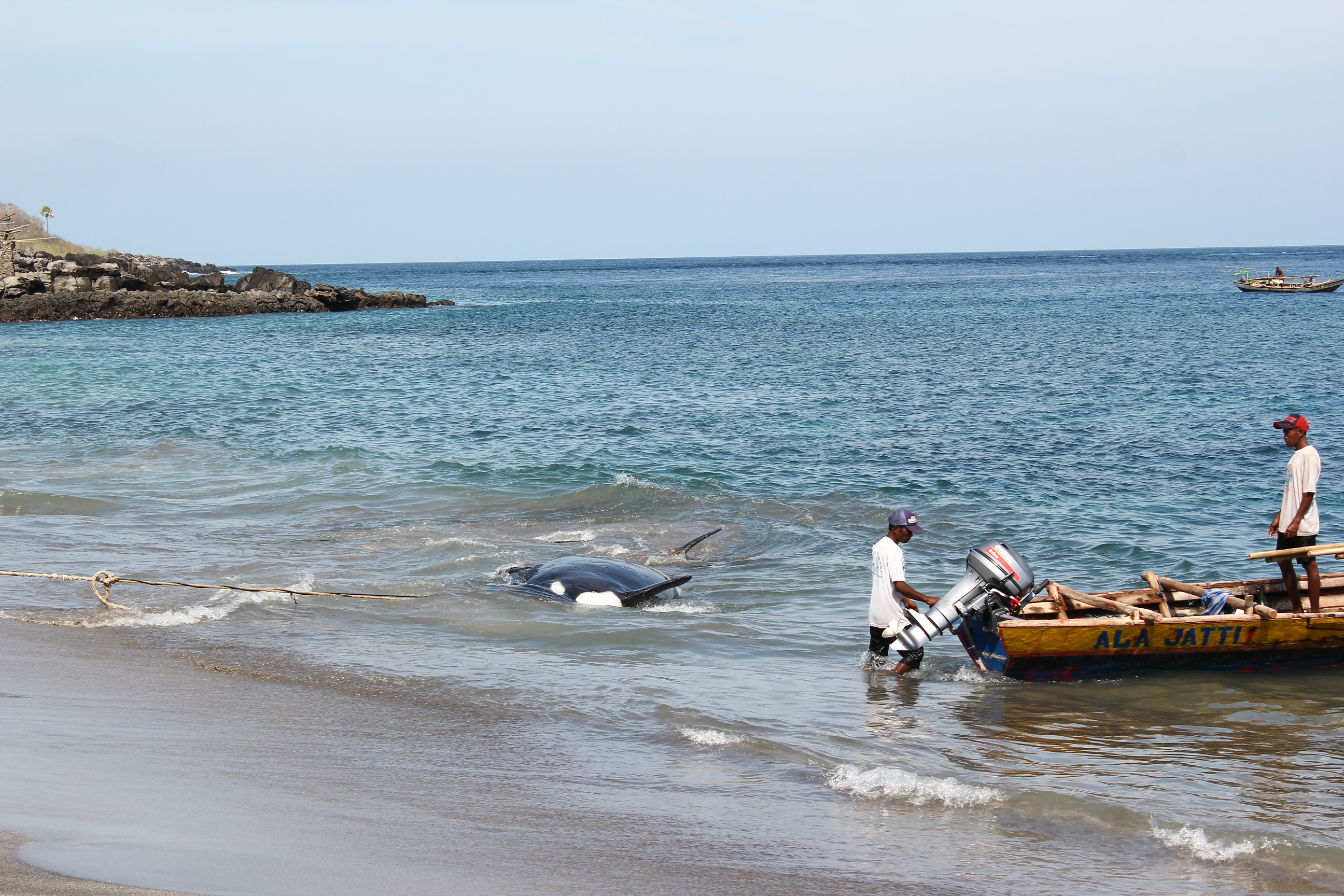Fishermen from the village of Lamalera on the Indonesian island of Lembata recently targeted a family of orcas in an illegal hunt, resulting in the deaths of a mother, father, and baby trio. While commercial whaling was banned in 1986, fishermen in the remote village are permitted to kill two whales per year using traditional methods, in accordance with the International Whaling Commission’s exception for traditional subsistence whaling.
 Fishermen use outboard (motorized) engines to illegally kill a family of orcas, Lamalera, Indonesia. Credit: Dolphin Project Fishermen use outboard (motorized) engines to illegally kill a family of orcas, Lamalera, Indonesia. Credit: Dolphin Project
“Within their cultural practices, an innate understanding of fishing for subsistence regulated the number of animals captured, with taboos including prohibitions on hunting pregnant, mating or young whales. However, with a hunting season extending from May until the end of October, and motorized boats commonly used to catch dolphins and other toothed whales, sea turtles, sharks and manta rays, there may be a commercial aspect to their hunting.” ~ Femke Den Haas, Director of Dolphin Project’s Indonesia campaign.
Lamalera has long resisted outside interference, even from governmental officials. However, recent visits by Dolphin Project’s team in Indonesia has generated a new dialogue, with conservation, education and ecotourism initiatives being proposed in order to assist the village with sustainable economic alternatives to dolphin and whale hunting. Together with the local Lembata government, we are constructing a marine education center, and are the only non-government organization working here on marine conservation issues. Through education and awareness, Dolphin Project remains committed to supporting positive change in Lamalera.
 Dolphin Project, together with the local Lembata government are constructing a marine education center. Credit: Dolphin Project Dolphin Project, together with the local Lembata government are constructing a marine education center. Credit: Dolphin Project
In Taiji, greed has continued to take casualties, as Dolphin Project Cove Monitors documented the hunt of three species captured in two separate drives during a single day. Of those species, numerous rough-toothed dolphins, a new addition to the annual quota, were condemned to a life of captivity, demonstrating once again that tradition is not the impetus driving the hunts. And, just a few days ago, the first successful hunt of bottlenose dolphins took place, resulting in 17 mammals forcibly recruited into the entertainment business.
 New to this year’s quota, a pod of rough-toothed dolphins are driven into the cove, Taiji, Japan. Credit: Dolphin Project New to this year’s quota, a pod of rough-toothed dolphins are driven into the cove, Taiji, Japan. Credit: Dolphin Project
In a moment which should have defined the centuries-old relationship between human and dolphin, instead, exposed an unconscionable violation of trust.
Through Dolphin Project’s field campaigns, we will continue to document these hunts and share information with the rest of the world. Only through awareness and education can we enact positive change.
|
No comments:
Post a Comment